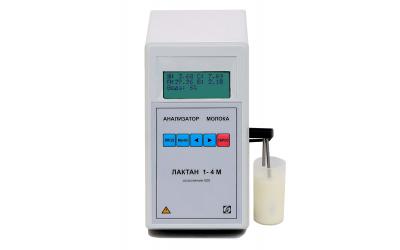WHO stresses the importance of using high-quality vaccines that meet the new standard
The ongoing spread of African swine fever ( ASF ) is causing concern for the global pig industry, as no region has escaped its impact. For many years, the lack of an effective vaccine or treatment has made disease control extremely difficult. The scientific community is working to develop an effective vaccine, and recent announcements of the approval or testing of modified live vaccines in several countries have raised hopes for effective new tools to contain the current ASF epidemic. Many countries are interested in using these vaccines as an additional tool to prevent and control the risk of ASF spreading within their territories.
First adoption of standards for ASF vaccines
The first standards for the production of safe and effective ASF vaccines were adopted in May 2025 by the OMSA Global Assembly of Delegates. OMSA urges vaccine manufacturers and its members to consider these standards when developing and evaluating candidate vaccines for regulatory approval.
OMSA emphasizes the importance of using only high-quality ASF vaccines that meet the standards outlined in the Terrestrial Manual, have proven efficacy and safety, and have been evaluated and approved by the relevant national regulatory authority.
Vaccination against ASF should not be used as the only control measure.
Regardless of vaccine effectiveness, vaccination programs should be implemented as part of a comprehensive prevention and control strategy, including other important measures such as surveillance for early detection, strict biosecurity, import measures, and movement controls.
Vaccination, if used, should be conducted within a well-structured program that takes into account, among other factors, the local epidemiology of the disease, the expected vaccination objectives, and the adequacy and sustainability of available technical, financial, and human resources. These programs should always include post-vaccination surveillance and monitoring, as well as an exit strategy for discontinuing vaccination, as established by the WHO International Standards on Vaccination.
Risks of using substandard or inadequate vaccines
The use of inappropriate or substandard vaccines may provide no protection against ASF and carries the risk of spreading vaccine viruses that can cause acute or chronic disease. Furthermore, these vaccine viruses can recombine with strains present in the field, creating new variants that can evade detection and cause acute, chronic, or persistent infections.
WHO encourages its Member States to actively report incidents involving substandard vaccines that do not meet quality specifications after regulatory approval, in accordance with the sixth recommendation of Resolution 29, adopted in May 2025 by the WHO World Assembly of Delegates. These incidents can be reported through the WHO Global Alert System for Substandard or Falsified Veterinary Products (VSAFE pilot system) to strengthen vaccine quality surveillance and support their recall from the market.
Read together with it:
- Колумбия: При экспорте скота сертификация и прослеживаемость больше не являются необязательнымиВысококачественное животноводство, особенно при экспорте, требует сертификации и прослеживаемости. Это необходимые условия для выхода и конкуренции на многих международных рынках, а также на некоторых всё более требовательных внутренних рынках. Колумбийское животноводство не является исключением из этих правил, и, хотя предстоит ещё многое сделать, всё большее число ферм и компаний внедряют эти ме...
- Аргентина добивается прогресса в вопросе возможности продажи живого скота в ТурциюОднако этот первоначальный оптимизм сопровождался призывом к действию. Чтобы превратить эту возможность в устойчивый торговый поток, необходимо было преодолеть два ключевых препятствия: санитарную обстановку в отношении ящура и отсутствие индивидуальной прослеживаемости. С публикацией резолюции 841/2......
- New BoviRes-RSVI vaccine for early immunization of calves: A breakthrough in veterinary scienceOne of the vaccine's key advantages is its optimized immunization schedule. Research confirms that colostral antibody levels in calves begin to decline as early as 21 days after birth. Traditional vaccination schedules do not always ensure rapid development of post-vaccination antibodies, increasing the risk of disease during this critical period. Alexander Kononov, HEAD of the Biotechnology Labor...
- «Принцип поля картошки». Как возникла «Русская община» и кто за ней стоитНесколько лет назад никому не известная «Русская община» выросла в федеральную сеть с идеологами, дружинниками и отделениями в регионах России. Как и для чего она устроена, как работают связи с РПЦ и силовиками — в статье РБК — Как узнал про нас? — Из соцсетей. — Как к спорту? — Занимался рукопашным боем, но из-за учебы нет времени заниматься. Хотел как раз познакомиться с людьми у вас, потрениров...
- Strictly adhere to technology and be passionate about your business. The chairman of the agricultural production cooperative explained how to prevent livestock losses.October 30, Vitebsk Region. Romuald Shukel, chairman of the Mayak Braslovsky agricultural cooperative, spoke to journalists about how to avoid mortality in livestock farming, a BELTA correspondent reports. "The secret is that when a calf is born, you need to follow all the raising technologies - colostrum, vaccinations , proper feeding from the first day - we have muesli and everything else. It's ...
- Матричные РНК-вакцины от COVID продлили жизнь тяжелых раковых больныхМатричные РНК-вакцины против коронавируса продлили жизнь пациентам, больным раком в самой тяжелой, четвертой стадии, сообщает The Washington Post. К такому выводу пришли исследователи Онкологического центра имени М. Д. Андерсона Техасского университета и Университета Флориды. «Эти данные невероятно интересны, но они должны быть подтверждены в ходе третьего этапа клинических испытаний», — заявил од...
- While Argentina is still waiting, Bolivia has already received the green light to export beef offal to China.Both sides confirm that the ongoing negotiations are proceeding as planned, and recent reports indicate that news could be released by the end of this month. However, others are more skeptical, claiming that the negotiations are being delayed amid anti-China dalliances between President Javier Milei and his American counterpart, Donald Trump. Meanwhile, some are already celebrating the opening of ...
- Chile resumes importing meat and livestock from PatagoniaThe resolution, eagerly awaited by the livestock sector, lifts the suspension of imports of Patagonian livestock products, which was imposed at the end of July. This was announced following the completion of a technical audit conducted in Argentina by Chile's Agricultural and Livestock Service (SAG). Chile took corrective measures after the Argentine government amended its sanitary regulations, pa...





























































